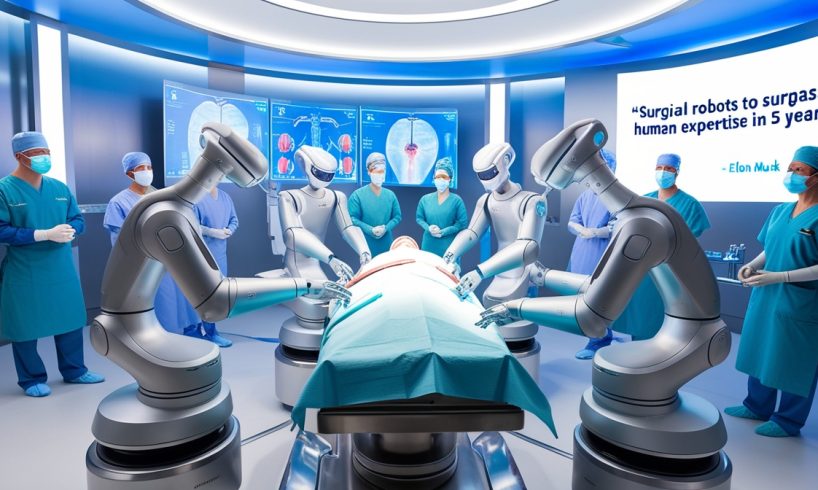
In a bold prediction that underscores the rapid evolution of artificial intelligence and robotics, Elon Musk has claimed that robots will outperform even the best human surgeons within the next five years. Speaking during a recent tech summit, Musk emphasized that advancements in precision robotics, AI-driven diagnostics, and machine learning are converging to redefine the future of surgery.
“AI and robotics combined are progressing at an exponential rate,” Musk said. “In just a few years, surgical robots will have better skills, precision, and consistency than any human surgeon could achieve.”
Why Musk Believes Robots Will Lead Surgery
Musk’s confidence stems from several technological trends:
- AI’s growing diagnostic ability: Machine learning models can already detect diseases like cancer, heart defects, and neurological conditions with astonishing accuracy — sometimes outperforming doctors in clinical trials.
- Advancements in robotic precision: Robotic arms, powered by real-time imaging and ultra-fine control systems, are reaching sub-millimeter accuracy, far beyond human dexterity.
- Data-driven improvement: Unlike human surgeons, robots can “learn” from millions of procedures by analyzing vast datasets, continuously refining their techniques.
Musk pointed to emerging technologies like Neuralink — his own brain-computer interface company — where ultra-delicate surgery is performed by robots capable of inserting electrodes finer than a human hair into brain tissue without causing damage. “If a robot can navigate the brain at that scale, operating on a heart or kidney becomes a technical problem, not a biological one,” Musk noted.
The Current State of Robotic Surgery
Robotic systems like the da Vinci Surgical System have already proven the value of machines in the operating room, assisting surgeons in delicate procedures such as prostatectomies, heart valve repair, and organ transplants. However, these systems are still largely dependent on human control.
What Musk envisions goes a step further: autonomous surgical robots capable of making decisions during procedures, guided by real-time data and sophisticated AI models. Early prototypes of such systems are already under research in top medical centers and universities.
Challenges Ahead
Despite Musk’s optimism, several hurdles remain:
- Regulation and trust: Healthcare authorities must rigorously test and certify autonomous surgical robots before they can be widely used. Patients and doctors must also trust machines with life-or-death decisions.
- Ethical concerns: Who is liable if a robot makes a mistake? How do we ensure that AI decisions are transparent and free of bias?
- Complexity of human anatomy: The human body can present unexpected complications during surgery, which currently require human judgment and adaptability.
Nevertheless, Musk is characteristically confident that these barriers are surmountable with the right technology and vision.
A Future of Machine-Enhanced Healthcare
If Musk’s prediction holds true, the healthcare landscape could be transformed dramatically. Surgeries could become safer, faster, and more affordable. Remote regions, often underserved by skilled surgeons, could access world-class surgical care through robotic deployments.
“Ultimately, the goal is not to replace human surgeons but to surpass human limitations,” Musk concluded. “The best surgeons will be those who embrace and collaborate with these advanced tools.”
Whether the world is ready for robot-led surgery remains to be seen — but if history is any guide, Musk’s forecasts, however audacious, often have a way of coming true.

I am a person who is positive about every aspect of life.I have always been an achiever be it academics or professional life. I believe in success through hard work & dedication.
Technology Blogger at TechnoSecrets.com




